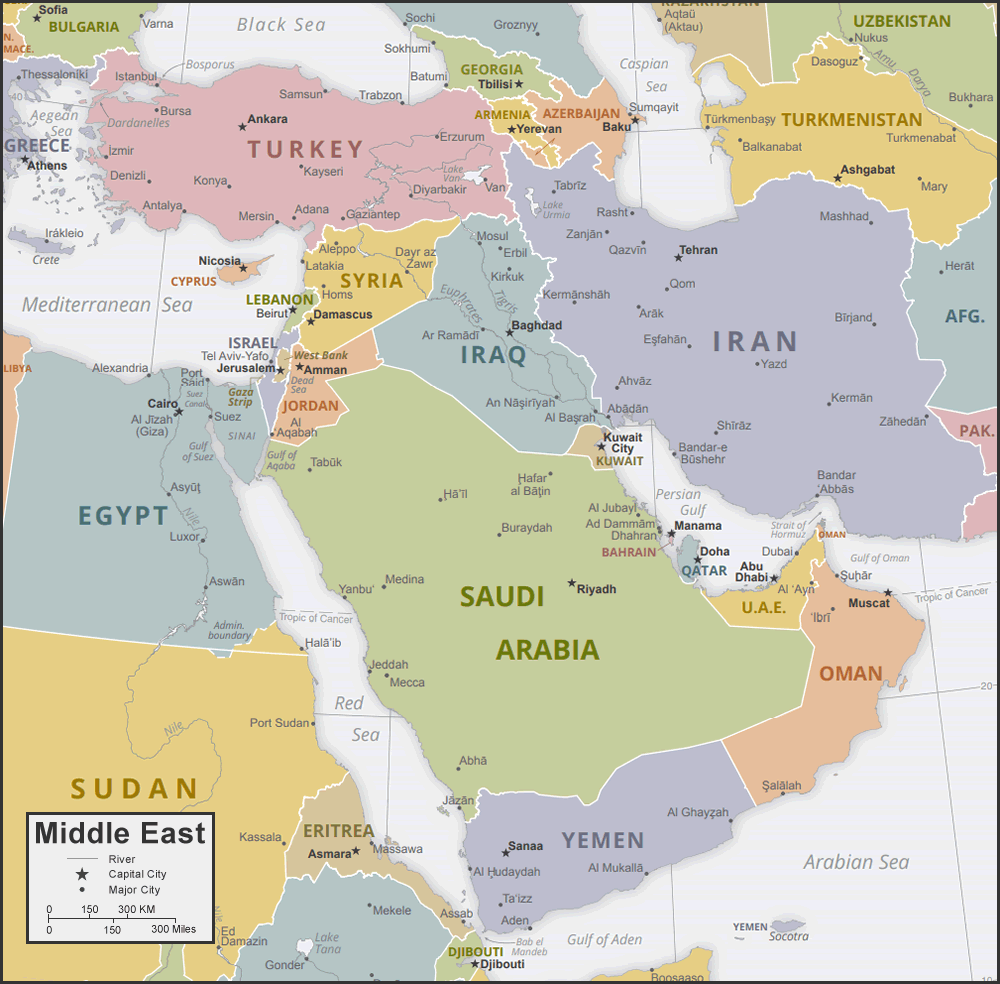Divorce Over Text Message – A Look at Marital Gender Roles
September 24, 2022
Over the past few years, a new trend has emerged in Saudi Arabia – men divorcing their wives over text message.
The legality of divorce in such a detached manner makes marriage feel more like a contract than a declaration of love and partnership. Just like one would check their email for news alerts, married women in Saudi Arabia may simply check their phone and find an alert for a change in marital status.
To some, marriage is now seen only as paperwork – without connection to their significant others, viewing wives as things that can simply be taken and pushed away by signing on the dotted line. This puts husbands in legally enforced marital power over their wives, and sets a precedent of dependence upon the family patriarch.
It is painfully clear that women (in this case, particularly in Saudi Arabia) have no control over marriage. Husbands can simply divorce wives without their consent or mutual agreement. Sudden divorces leaves many women without income or homes, and entirely stranded in a society in which they have limited rights.
From this, it can be deduced that the power imbalances between men and women is not just situational – it is legally engrained in everyday life. Children may live in situations in which their mothers can be removed from their family at any time, and wives may be under constant stress to keep their husbands from leaving whenever they would like, not to mention the worries of supporting oneself when the right for women to drive was only approved a few years ago.
This highlights the fact that while women press for more independence and rights, they are still heavily reliant upon those that they are fighting against. Many women would like to be more empowered, but can only do so with resources from men.
Media challengers are beginning to influence the roles of women in the public sphere throughout the Gulf Cooperation Council (GCC). Female representation within the public sphere has been extremely disproportional, which may be related to gender roles throughout the GCC.
However, given the increasing presence of social media, gender roles have been questioned, and in some cases, are changing due to activism. The use of social media allows many people, particularly women, to speak their minds regarding their gender roles. This growing media presence has mobilized women to challenge the government, and unite to create change.
States within the GCC have “aim[ed] to establish the public sphere’s foundations, delineate its boundaries, and monitor its content both regarding its inward-facing and outward-facing news coverage” (see link below). This state control of the public sphere dangerously impedes upon the voices of women. Simple feminist GCC searches have yielded few results, virtually no photographs, and primarily dense scholarly articles that were written outside of GCC states.
The unity between women has been possible due to the increase of social media. In recent events, GCC society has seen an increase in women resisting and condemning patriarchy and misogyny. In addition to this newfound resistance produced by social media, women have also grown to resist gender norms, and promoting their ability to speak out, fighting gender violence and sexual harassment. This speaks directly against the patriarchal norms of GCC society, in which women are expected to be quiet and submissive to men.
Ultimately, the simultaneous presence of widespread social media and female education/entrance to the workforce has created a media uprising of Arab women embracing activism.
Personally, I would like to look at the statistics between feminist uprisings within the GCC (and perhaps note a presence of censorship), and compare that to changes/increases in female education and female presence within the workforce.
I would also like to look at male roles within the household at the same time – looking at men becoming “stay at home dads”, which is somewhat radical even in the western world.
Looking at the radical switch from women being “quiet” and “submissive” within a patriarchal society to uprising against government and calling out their abusers, pushing for change, Social media must have some presence in its ability to organize women. I would also like to investigate government control of the media – how do women work around censorship? is there censorship? why would the government want to suppress women?
Today I was privileged to participate in the Clarke Forum. I have never had a reason to go over my past 2 semesters at Dickinson, so it was nice to do something new.
While I entered ATS and sat down, I was solely focused on relating this presentation to Media and Politics in MENA (Middle East and North Africa). However, what was discussed was somewhat of a mashup between my FYSM class, and the current MENA class.
To give some context – my FYSM class was centered around “Black Horror” – the portrayal of black populations in America across all different types of medium. Originally, it was really just a requirement I had selected because we got to watch a movie during class. However, as most of my graduation requirements end up going, of course I ended up loving it. There is something about taking a class that you don’t “need” to try and perfect, that results in learning the most. By not “having” to stress about a class as some kind of step into a new chapter of organic chemistry or genetics makes it all the more captivating, and more of a personal interest.
Throughout the forum, my past connections and knowledge on media’s portrayals and their historical/political significance really was able to shine through, allowing me to better understand the presentation.
Our presenter for today focused on the commonly known “black twitter”, specifically with regard to “karen” memes. The context of black twitter was touched upon as a social sphere – allowing a collective community (in which virtually anybody could join behind a screen) to voice racial aggressions to a huge audience. These collectively experienced microagressions were made possible through media – video recordings of the police calls made by “karens” and photo/video evidence of situations were posted for the world to see, comment on, and share to other to repeat.
This gave way to a particular type of media: memes.
Memes are extremely prevalent on social media apps today, due to their simplicity, humor, and entertainment. They are rapidly shared, and by using the same format, easy for large audiences to understand. Given their humorous nature, many people on Black twitter who have suffered racial injustice and trauma used this type of humor to cope and spread awareness – seeking change so these actions do not go unchecked.
One particular situation was the focus of tonight’s forum – an incident in which a Black family was having a barbecue in a public park, when a white woman confronted the family and called 911, citing that the family was not allowed to use coal in the public grill, and later called 911 again.
This situation reached Black twitter, and spread like wildfire due to the ability of social media to bounce from one person to another in seconds. Memes can be created in a matter of minutes, and they started to snowball. First from rapid sarcasm, and then eventually reaching for more politically academic topics regarding BLM history and national reception of Black Americans (seen in the two memes below). This illuminated the stereotype of white women harassing Black people under the veil of being upstanding, moral citizens.
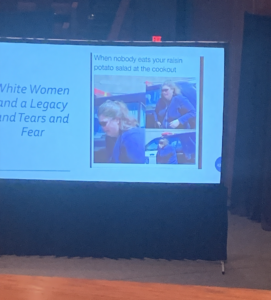
A milder meme that included the stereotype of white women putting raisins in potato salad (which not many people like). Made me laugh.
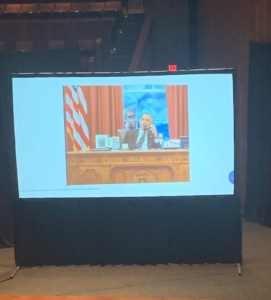
Note the same Karen from this picnic example being shown peering through the window – beginning to touch on relevant political topics that are controversial. This made me laugh harder. I included a similar version below that is less grainy but is the same general concept.


This was one of the last karen memes that we saw regarding this woman who interrupted a family picnic.
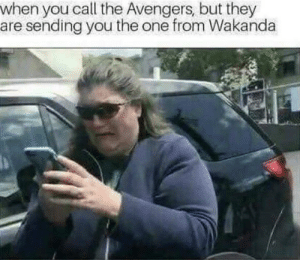
one that I looked up myself and found funny
Social media allowed massive communities to spread this information, and with each share, a new idea/comment/concern/personal anecdote could be added, and created what was essentially political art through amusing photos.
It is this social media prevalence that picked up the attention of mass media, which began spreading these stories to a larger audience – people from much different backgrounds, who may have different political views and personal beliefs. This actually created some serious political movements – particularly the C.A.R.E.N Act, in which racially motivated 911 calls are illegal.
A final thing that I found fascinating in the scope of our media class – during the beginning of this presentation, it was touched that media is also looking back at you. Many times, we find ourselves sitting behind the comfort of a screen, or even hiding behind it. The word “panopticon” (a new word for me) was briefly defined. Essentially, in prisons, prisoners do not know when they are being watched and they are not – this creates a culture in which prisoners self govern, and constantly act if they are being watched whether or not they actually are. This creates a feeling of constant stress, as one would naturally feel if they always had somebody “breathing down their neck” and watching their every move.
While this was used as a comparison to give context to the lived experience of Black individuals today, the theory of the “watched” versus the “watcher” is incredibly important when we study media. As we consume media, it is important to remember who we are, who we are watching, who is watching for us, and who is watching us. (or those we are studying).
I will not lie – I had originally only went to this forum with the goal of some extra credit in mind. However, I came out actually enjoying it? It was nothing like the 75 minute lecture I was bracing for. It left me intrigued and hyperfocused on wiki pages regarding “karen phone calls”. I intend on participating in the next clarke forum as well.
What is the GCC? – A Brief Introduction to the Gulf Cooperation Council.
September 9, 2022
A Geographic Perspective:
Border Geography
The Gulf Cooperation Council (GCC) is a collection of States located in the Middle East. It shares land borders with Jordan, Iraq, and Yemen, along with coastal borders to Egypt, Somalia, Sudan, and Eritrea.
The Countries included are:
- Saudi Arabia
- United Arab Emirates (UAE)
- Qatar
- Kuwait
- Oman
- Bahrain
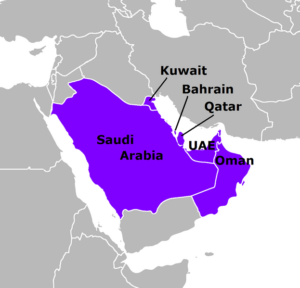
A map of the GCC countries. https://www.hadielfarr.com/gulf-cooperation-council.html
Physical Geology (Topography)
Land within the GCC is diverse – it includes the Arabian Desert, grasslands, mountain ranges, highlands, and volcanic fields. While there are not many permanent bodies of water, flash floods and non permanent rivers are common.

Geography of the Arabian Peninsula http://saudi-archaeology.com/background/geography-arabian-peninsula/
The GCC has a fairly large extent of coastal land compared to its size. It is connected to the Red Sea, Arabian Sea, and Persian Gulf. While it is not connected to the Mediterranean Sea, it is extremely close to it.
Culture Within the GCC:
Infrastructure
Several projects were created in order to improve power and water supplies, along with improvements to transportation systems, specifically railroads.
Government
There are several different levels of government within the GCC, each with its own purpose:
- Supreme Council
- The GCC has a reigning “Supreme Council” which has a representative from each state – typically the head of each state.
- Ministerial Council
- Secretariat General
- Monetary Council
- Patent Office
- Peninsula Shield Force
- GCC Standardization Organization
- Gulf Organization for Industrial Consulting
Language
Arabic is the official language of GCC countries, and dominates the population. Other commonly used languages in the GCC are English and Hindi.
Historical Events and Foundation of GCC:
Creation of the GCC occurred in 1981, following a meeting of several powerful politicians. Several different goals were made to improve all member states of the GCC.
- Common market and currency
- Customs union
- Unification of military, state populations, and regulations
- Creation of new and improved education, science, and technology
Due to the prevalence of oil and natural gas, many of these goals were able to be funded, and the economy has significantly surged.
